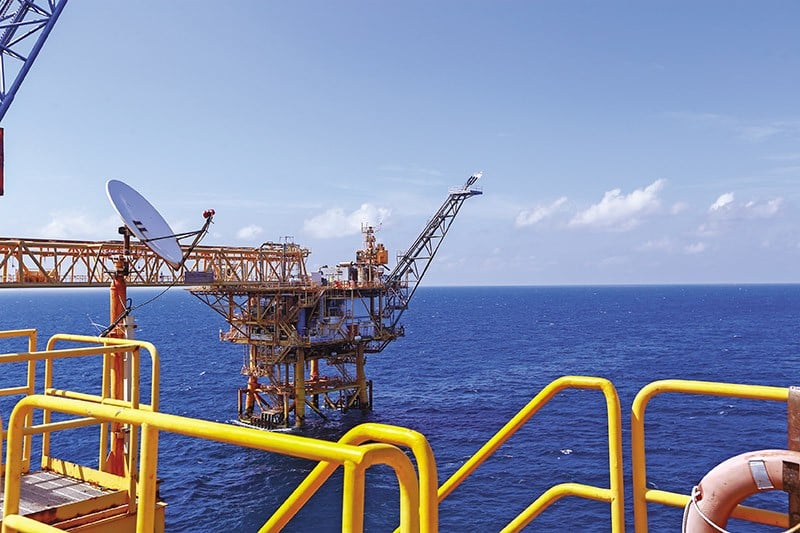
Over the past 40 years of Renovation, the state economy has gradually promoted its leading role, a number of large-scale economic groups and state-owned corporations with good brands, effective production and business activities, and the ability to compete regionally and internationally, have maintained a key position in the economy. However, for the state economy to truly play a leading role in ensuring major balances, strategic orientations, and leading the economy, the reality requires "Continuing to promote the restructuring of public investment, state-owned enterprises and credit institutions... Innovating state-owned enterprises, focusing on innovating governance according to international standards, enhancing the efficiency and leading role of state-owned enterprises" - as emphasized in the Draft Documents submitted to the 14th National Party Congress.
Lesson 1: State economy plays a leading role
With the current scope, the state economy plays a decisive role in the development of the entire national economy, because it creates fundamental conditions for the development of other economic sectors and the entire economy.
The concept of "state economy"
The concept of “state economy” was first mentioned at the 8th National Party Congress: “Proactively innovate, develop and improve the efficiency of the state economy and cooperative economy. The state economy plays a leading role, and together with the cooperative economy, gradually becomes the foundation of the economy.”
The state economy includes: state-owned enterprises; state economic units (for example, public service units); the system of assets owned by the entire people with the State representing the owner (such as land, sea, islands, natural resources on and underground, sea, islands, airspace, wealth, assets, means of production, capital, state budget, national funds, etc.).
State-owned enterprises are considered the core force of the state economy, an important material force, a support tool for the State to regulate the economy, stabilize the macro-economy, and contribute to promoting the country's socio-economic development in the direction of socialism.
The leading role of the state economy; innovation and development of state-owned enterprises have been affirmed throughout the 9th, 10th, 11th, 12th and 13th Party Congresses.
The 13th National Party Congress continued to affirm: “The state economy is an important tool and material force for the State to stabilize the macro-economy, orient, regulate, lead and promote economic and social development, and overcome the shortcomings of the market mechanism. The State's economic resources are used in accordance with the country's development strategies, plans and projects and are basically allocated according to the market mechanism.”
“State-owned enterprises focus on key areas, important areas, national defense and security; operate according to market mechanisms, modern management according to international standards; take economic efficiency as the main evaluation criterion, compete equally with enterprises of all economic sectors. Restructure state-owned enterprises in the direction of focusing on key areas, important areas, national defense and security; improve financial health, improve technology level, innovation capacity, modern management according to international standards to improve operational efficiency, and perform well the role of an important material force of the state economy”.
“Continue to improve institutions, promote development, and improve the operational efficiency of enterprises. Speed up debt settlement, divestment, equitization, and restructuring of state-owned enterprises; promote innovation, improve technological level, and apply modern corporate governance to improve efficiency, while closely inspecting and monitoring enterprise operations to prevent loss and waste of state capital and assets.”
In practice, over 40 years of Renovation, the state economy has gradually promoted its leading role, contributing nearly 30% of GDP (before 2010), more than 21% of GDP and more than 1/4 of total social investment (after 2010); the promotion of restructuring, innovation and improving the operational efficiency of state-owned enterprises has achieved clear results; state-owned enterprises have been decentralized, delegated power and given more initiative in production and business; a number of large-scale economic groups and state-owned corporations have good brands, effective production and business activities, are competitive in the region and internationally, and maintain key positions in the economy; state-owned enterprises with long-term losses have been handled with positive results.
The draft documents submitted to the 14th Party Congress emphasized: "Continue to promote the restructuring of public investment, state-owned enterprises and credit institutions... Innovate state-owned enterprises, focusing on innovating governance according to international standards, enhancing the efficiency and leading role of state-owned enterprises".
“Developing the state economy truly plays a leading role in ensuring major balances, strategic orientation, and leading the economy... Building a number of large-scale economic groups and state-owned enterprises that operate effectively and have international competitiveness, playing a pivotal and pioneering role in a number of important fields such as energy, information technology, telecommunications, manufacturing industry, finance - banking, and infrastructure.”
“Promote digital transformation, innovate the way of evaluating and improving the performance of state-owned enterprises associated with corporate governance according to advanced international principles and standards. The State invests capital in enterprises operating in important, key, essential fields, in important areas and in national defense and security; develop fields and industries that enterprises of other economic sectors are not capable of or do not invest in... Promote decentralization, delegation of authority, individualization of responsibilities associated with measures to urge, inspect, supervise and enhance the responsibility of leaders and representatives of state capital owners”.
Another perspective on state economy
The draft documents submitted to the 14th Party Congress emphasized: "Developing the state economy truly plays a leading role in ensuring major balances, strategic orientation, and leading the economy...".
In reality, there are still different opinions about the role of the state economy.
With the scope as currently defined, it is clear that the state economy plays a decisive role in the development of the entire national economy, because it creates fundamental conditions for the development of other economic sectors, of the entire economy. No economic sector can develop without fundamental conditions of land, natural resources, socio-economic infrastructure, currency, market...
However, if considered like that, there seems to be a confusion between the state economy - a component part of the unified national economic system - and the State - the entity responsible for creating favorable economic and social environment conditions for the development of the national economic system.
If we only consider the business force of economic sectors, the role of economic sectors in the country's economic and social development will ensure "fairness", "equality", "equivalence" and be more accurate.
While considering state-owned enterprises as the core force of the state economy, the assessment of the role of the state economy is mainly reflected through the assessment of the role of state-owned enterprises.
If we perceive the “leading role” in the sense of orienting the development of economic sectors, leading and promoting economic entities to operate according to a common unified goal in the process of building a socialist-oriented market economy, then that role must belong to the State under the leadership of the Communist Party. The innovation and strengthening of the role of the State in accordance with market principles is considered a decisive factor in implementing the requirements of orienting development, leading and promoting economic sectors in the process of developing a socialist-oriented market economy.
In a socialist-oriented market economy, when performing the function of state economic management, the socialist state must perform a “dual role”. On the one hand, the state is the manager of the entire national economy; on the other hand, the state is the owner of state-owned enterprises.
In such conditions, the principle issue that must be thoroughly understood is that the State must treat all enterprises equally regardless of the type of organization, form of ownership and economic sector. Specifically, the State must treat its owned enterprises (state-owned enterprises, first of all, enterprises in which the State owns 100% of capital and assets) equally with other types of enterprises of domestic and foreign owners.
In a market economy, in accordance with the provisions of law, owners have the right to choose the type of business organization with which they are able to best achieve their goals and obtain the highest benefits (economic and non-economic). The role of the State in a market economy is not to impose on owners a fixed type of business organization, but to create a legal framework for diverse types of business organizations, determine the legal characteristics and conditions of application of each type so that owners can choose the one that best suits their conditions and wishes.
On that basis, the State performs legal acts of recognizing the type of business organization that the owner has registered through the business registration issuance process. During the business process, the State carries out forms of inspection and control of the business activities of the owners to help them achieve their set goals and bring the activities of the business organizations into the prescribed legal corridor, but must not directly intervene in their business activities...
The transformation of business organizations is considered a natural and inevitable process. In theory, it is a way to adapt production relations to a certain level of development of productive forces and promote the development of productive forces. In practice, it is a way to demonstrate that the State respects the rights of owners in choosing the form of exercising their ownership rights...
The State plays the role of guiding, building and perfecting economic institutions, creating a fair, transparent and healthy competitive environment; using State tools and resources to guide and regulate the economy, promote production, business and protect the environment; implementing progress and social justice in each step and each development policy. Promoting the role of the People as masters in economic and social development...
(To be continued)
Source: https:// bsr .com.vn/web/bsr/-/phat-trien-kinh-te-nha-nuoc-qua-gan-40-nam-doi-moi-va-de-xuat-kien-nghi-bai-1-kinh-te-nha-nuoc-giu-vai-tro-chu-dao




![[Photo] Unique art of painting Tuong masks](https://vphoto.vietnam.vn/thumb/1200x675/vietnam/resource/IMAGE/2025/11/14/1763094089301_ndo_br_1-jpg.webp)


![[Photo] Unique architecture of the deepest metro station in France](https://vphoto.vietnam.vn/thumb/1200x675/vietnam/resource/IMAGE/2025/11/14/1763107592365_ga-sau-nhat-nuoc-phap-duy-1-6403-jpg.webp)
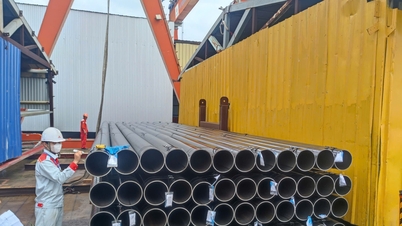






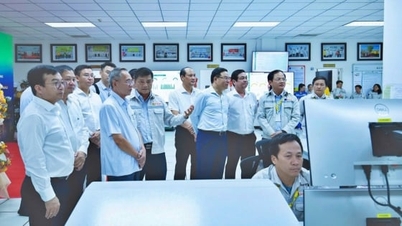




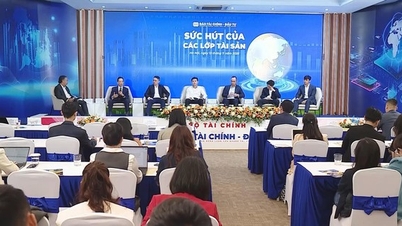


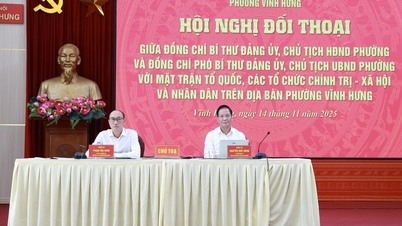

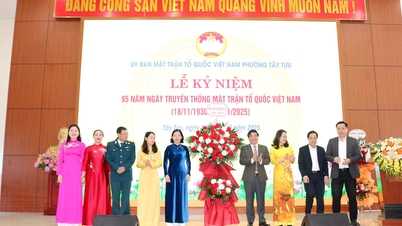

![[Photo] Special class in Tra Linh](https://vphoto.vietnam.vn/thumb/1200x675/vietnam/resource/IMAGE/2025/11/14/1763078485441_ndo_br_lop-hoc-7-jpg.webp)








































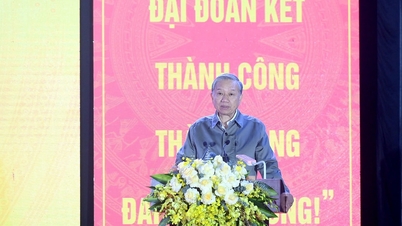




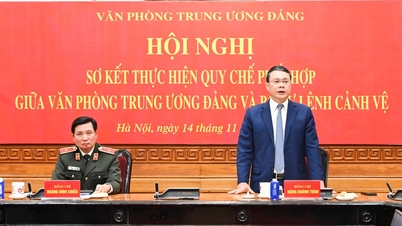




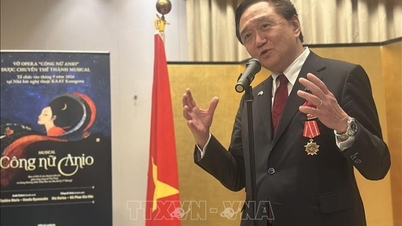



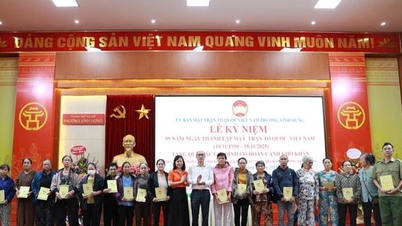













Comment (0)